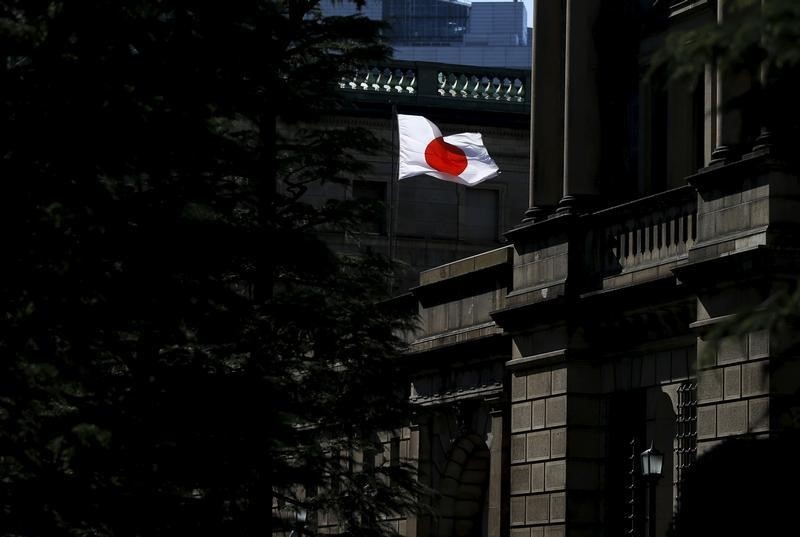 © Reuters. Central Banks Must Face Financial Imbalances, Ex-BOJ Chief Says
© Reuters. Central Banks Must Face Financial Imbalances, Ex-BOJ Chief Says(Bloomberg) — Central bankers must face up to a conflict between maintaining price stability and financial stability during a period of prolonged monetary easing, said Masaaki Shirakawa, who led the Bank of Japan from 2008 to 2013.
Monetary policy achieved price stability through inflation targeting in the past but failed to prevent major economic crises caused by financial imbalances, Shirakawa said during a conference in Seoul on Monday.
“We have to have a legitimate concern about financial stability stemming from the combination of more debt and declining potential growth,” said Shirakawa, currently a professor at Aoyama Gakuin University in Tokyo.
Central bankers neglected financial imbalances because they were regarded as a problem that was better addressed by regulation, he said. It was also harder to measure and monitor financial instability and required cooperation among authorities, he said.
The decline in national potential growth rates and an excessive reliance on monetary policy means the link between price and financial stability is becoming more important as debt piles up, he said.
Inflation Challenge
Shirakawa said it has also become increasingly challenging to accurately measure inflation.
“Looking into the future, how confident can we be in measuring prices of goods and services?” he said, citing the example of Google (NASDAQ:) maps, which allows users access to navigation data for free.
He also stressed the importance of recognizing the increasing importance of global forces to the monetary policy of individual nations, a factor that makes it less meaningful to analyze inflationary pressures using the domestic output gap.
Shirakawa was criticized during his term for doing too little with monetary policy in the wake of the global financial crisis, when the Federal Reserve’s quantitative easing helped drive the yen to a record high against the U.S. dollar, strengthening deflationary pressures in Japan.
But with current BOJ Governor Haruhiko Kuroda having failed to achieve the 2% price target after more than five years of extraordinary stimulus, some people say Shirakawa was right to blame Japan’s struggles with deflation on a lack of an appropriate growth strategy instead of insufficient monetary stimulus.
Comparing Japan’s post-bubble performance in the 1990s with those of Western countries since 2007 shows that Japan didn’t fare so poorly as once thought, Shirakawa said. “Many people have come to understand that its performance was not so bad as implied by the term ‘lost decade,’” he said.
Fusion Media or anyone involved with Fusion Media will not accept any liability for loss or damage as a result of reliance on the information including data, quotes, charts and buy/sell signals contained within this website. Please be fully informed regarding the risks and costs associated with trading the financial markets, it is one of the riskiest investment forms possible.
Source: Investing.com


























